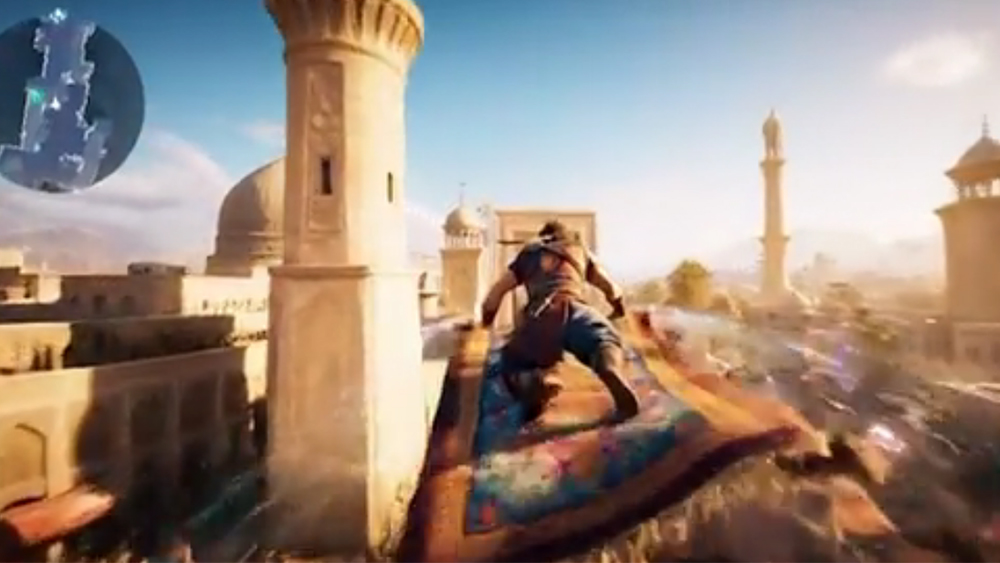
Generative AI continues to provoke a mix of excitement and consternation across creative industries. Every day brings announcements of new research and new AI apps, and several creative agencies we've spoken to suggest designers need AI skills today to get ahead.
Gaming is no exception. Both developers and tech giants like Nvidia are exploring AI models for game ideation, enhancement and even creation. But could that extend beyond generating game assets or even whole games to 'generative gaming' or 'living games' in which gameplay is generated by players themselves?
Are We Entering the Generative Gaming Era? from r/singularity
Over on Reddit, the user Singularity asked the question of whether generative gaming is coming after having "more fun than expected" generating imaginary gameplay footage with Google's Veo 3. Responses weren't slow in coming.
Veo 3 is getting a lot of attention for the fidelity of its video generation, and the Reddit user sees potential for gaming in the physics, lighting and detailed rendering. How far are we from prompting a playable game and being able to tweak the gameplay mechanics in real time? he wonders.
I'm starting to think we shouldn't underestimate anything about how exponentially AI may advance, but going from generating a few seconds of video to hours of consistent and controllable gameplay that follows deterministic rules would require several colossal jumps.
Microsoft has launched Muse for ideation (see the video below), and Capcom is using Vertex AI and Gemini to generate ideas for game development, but it's another thing to actually generate a game. Perhaps the closest research to this is Genie 2, which Google describes as a large-scale foundational world model, but consistency remains poor.
Some of those responding on Reddit argue that AI will never be able to tackle the sheer amount of work that goes into making a game, from modelling to state management and database work. "I've worked extensively with AI and it can barely provide correct code for a simple shader in Unity," one person responds.
But some gamers think generative gaming is coming sooner than what might seem possible. They see the big franchises like Grand Theft Auto becoming AI sandboxes of their own IPs. The models would presumably be highly controlled to output a certain type of environment and story, but players would be able to prompt their own missions, say, and generate new spaces in the open world.
Playing a game would be like reading a Choose Your own Adventure novel, one person suggests. But the books involved choosing from finite options. Games can already offer that without requiring generative AI. For 'imagine your own adventure' to be possible, characters would need their own intelligence and memory modules, locations would need states that can be preserved so they look the same if you go back to them.
An AI would also have to be able to judge what a human might find fun. And beyond the technical feasibility, there's the question of resources due to the amount of energy such an AI would require.
But then maybe I'm assuming that AI-generated games would be intended to achieve the same kinds of things we take for granted in games today. Could they be a totally different kind of game?
"We'll probably have new types of games that give up on some of the things we expect from games now, like visual persistence of locations we revisit," one person suggests. "Maybe those games are written in a way where that isn't even possible, but generating ephemeral scenes is the point, it's the story, etc."
One area studios are exploring already is unscripted interaction with non-playable characters (NPCs) who can respond authentically to free conversation (there was that controversy around Sony's AI-generated Aloy).
One person suggests AI NPCs could become like real friends and even with their own social media accounts. That sounds terrifyingly dystopian, but not entirely implausible when you consider Meta's AI influencers on Instagram.
Perhaps the more pertinent question (and one applicable to all user AI-generated content, be it a game or a movie) is whether people would even want it and pay for it? Sure, people play games and watch films for personal entertainment, but the social aspect of sharing the experience with others is also a big part of the motivation. Would anyone play your AI-generated game with you if they can play their own?
"So then we get the absolute atomisation of culture," one person suggests. "Every person has their entertainment perfectly tailored to them and only them". The "great collapse", one person suggests on Reddit. Mass media and entertainment would cease to exist and everyone would "leave the world for their own personal infinite universe."
There's a nice thought to leave you with! What do you think? Is generative gaming feasible or even desirable? Let us know in the comments section below.
For current tools to make games, see our pick of the best game development software. Meanwhile, Reddit's also on fire with debate about whether AI means graphic designers need new skills.







